The Ultimate List of the Best 10 Digital PR Agencies in the UK and US (2025)
Digital PR
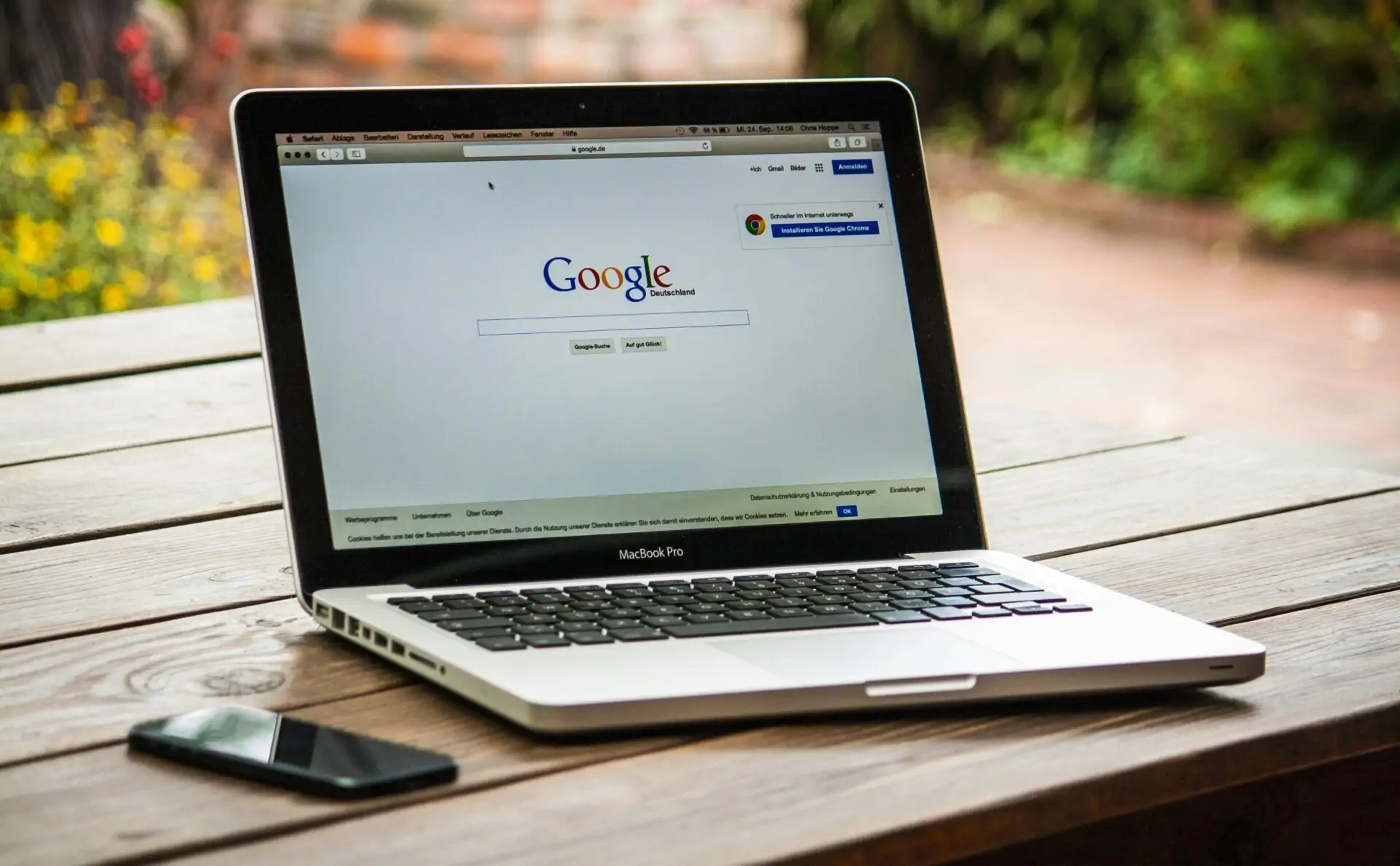
Recently, Google announced their new update.
To give you the lowdown, fast, it’s focused on 3 areas:
This should not affect sites that have been ethically doing SEO.
That said, this isn’t like other updates. Google has already made numerous changes, and sites are currently being de-indexed from search rankings.
I’d say that this update will be the most extensive in SEO’s history.
But should you worry?
For the most part, any brand that is doing good marketing will be fine. However, this comes back to links.
Google has been using an AI tool called Spambrain to detect link networks for some time now, and we’re seeing more sites that this has caught.
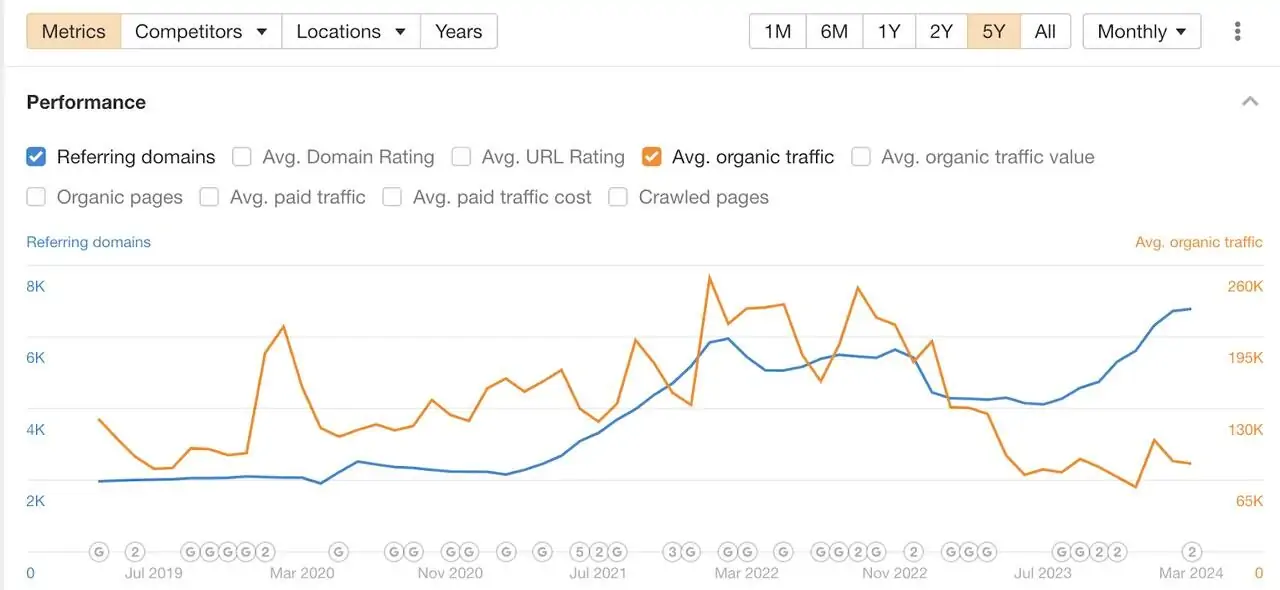
For this update, Google has given some guidance on what it calls site reputation abuse:
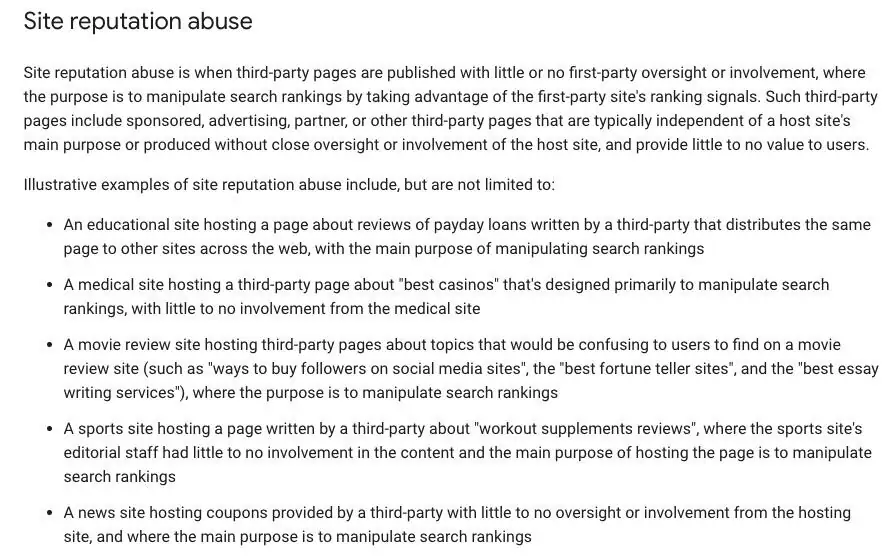
This update is targeted at something called parasite SEO. A term coined by black hat SEOs to create content on third-party sites and add links to their websites/ affiliate products. An example would be creating a super thin article on Medium or Linkedin and ramming it with affiliate links.
It could rank based on the sheer power of the domain authority, but it shouldn’t.
This is a muscle upgrade to their already existing Spambrain AI.
However, in that same spam policy, they also target the creation of low-value content for links.

This is a warning signal from Google to SEOs to clean up their act and stop trying to spam the web.
So, what could happen?
You’re not likely to get de-indexed, but there is a good chance that any links you’ve built through low-quality guest blogging will lose their value.
And you could gain a manual penalty.
SEO Expert Marie Haines Tweeted/ X’d a request that came through from someone hit and detailed the manual penalty.
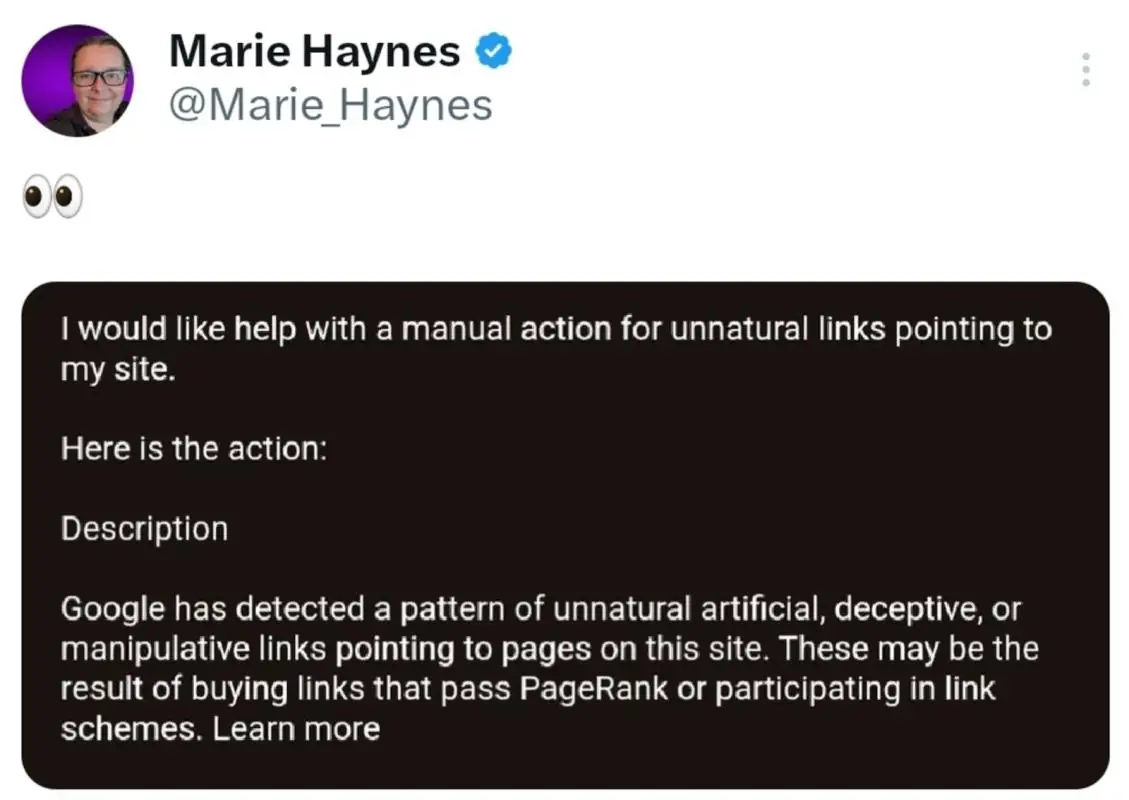
Google is actively hunting for Linkspam, and it’s getting better at it.
So, what is a good link these days?
Well, Google did come out in that same policy and clarify what wasn’t considered site reputation abuse.
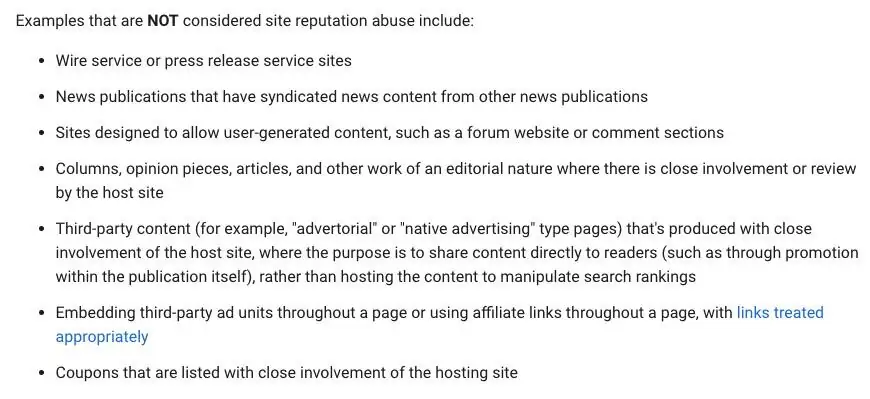
The key takeaway is ‘columns, opinion pieces, articles, and other work of an editorial nature where there is close involvement or review by the host site’.
That’s digital PR!
I’ve been telling SEOs to switch to digital PR link-building for a long time.
Why?
Because it is the most powerful way to generate links, increase brand search, gain website interaction, and increase your expertise in the eyes of customers and search engines.
My advice to anyone today is simple.
Fuel your SEO with digital PR.
It is the most effective method to generate links that move the needle.
And it’s 100% safe and spam-free.
So, what are you waiting for.
Get in touch and start your digital PR journey today.